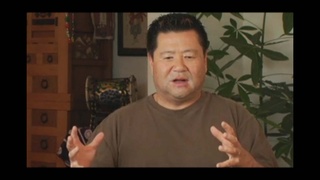Interviews
Singing the way I sing (Japanese)
(Japanese) My style—this so-called hip-hop style—really reflects the day to day me; the style that I feel represents me on a daily basis. I’ve tried to hold on to the Hip Hop image from since when I started performing Enka. When I try to explain why that is, it really comes down to the fact that when I’m on the stage, I want to perform Enka as myself. I sort of decided that I’d be that way, and I’d like to hold on to that.
Date: March 30, 2010
Location: California, US
Interviewer: Yoko Nishimura
Contributed by: Interview by Watase Media Arts Center, Japanese American National Museum. Courtesy of Japanese American Cultural & Community Center
Explore More Videos






Advantages of being Nikkei (Spanish)
(b. 1950) Nisei Chilean, Businessman



Starting Japanese American taiko their own way
(b. 1949) Musician and arts educator and adminstrator.

Childhood shame for being Nikkei in Enumclaw, Washington
Judge, only Japanese American to serve on CWRIC.


On the Impact of the Camp Experience
(b. 1942) The first Asian American woman judge

Thoughts on the term, "Nikkei"
(b. 1949) Musician and arts educator and adminstrator.

Post-redress future of Japanese Americans
Judge, only Japanese American to serve on CWRIC.

